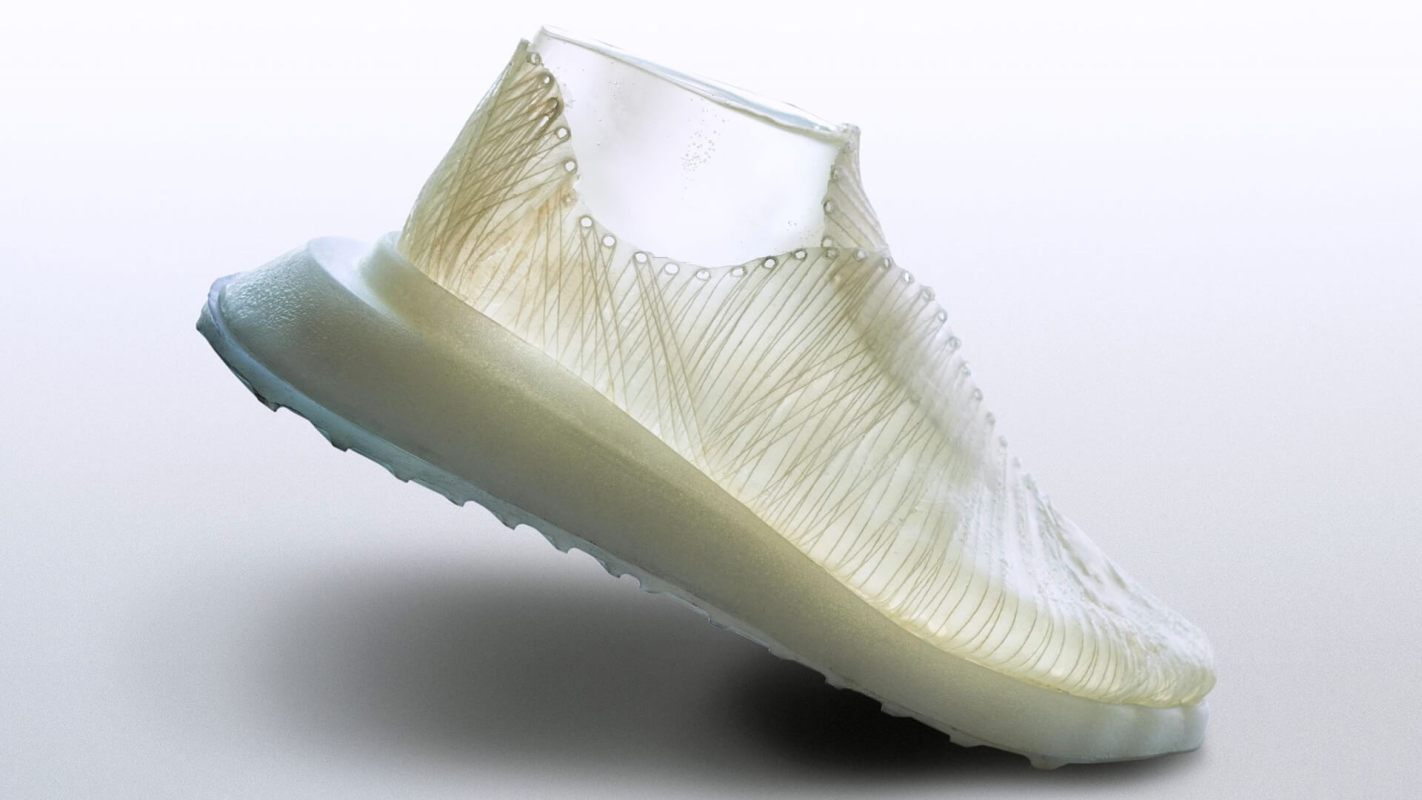Most clothing manufacturers weave their products, but Modern Synthesis grows them.
The U.K.-based startup creates shoes, clothing, and other textiles with a process straight out of a sci-fi movie. By attaching millions of hungry bacteria to an outline made of sugar, the company creates its own fabric seemingly out of thin air.
The process, called "microbial weaving," has been compared to 3D printing, although actually, it's a lot easier to understand. First, designers create a rough outline of an item using sugars collected from agricultural waste. Then, they attach the bacteria, which eat the sugars along that outline.
As they do this, the bacteria leave behind cellulose, an extremely sturdy compound found in other plant-based materials like wood, paper, and linen.
The process takes between 10 and 14 days, depending on the item. And the upsides are pretty wild.
For one, the bacteria can create fully customizable clothing that can fit any size or shape. It's also less wasteful than traditional weaving methods. By designing pieces in exact shapes, the company reduces any leftover fabrics. Each item is made with exactly as much material as it needs.
At the same time, the brand's shoes are essentially made from recycled materials, as they offer a use for agricultural waste that might otherwise get thrown away. And despite being so high-tech, Modern Synthesis' products are made of simple organic materials. This means the clothing can be recycled and used for more products down the line.
So when can you buy these items? Right now, Modern Synthesis is still raising money and helping other businesses improve their production. But the company hopes that it will soon be working with major manufacturers to create high-tech, fully recyclable clothing.
"What we're trying to do is build this new class of materials that is more sustainable but also allows us to design and create in new ways, which is really exciting for the fashion industry," Modern Synthesis co-founder and CEO Jen Keane told AgFunder News.
The goal, Keane told the outlet, is to create a "circular" manufacturing system. This is part of a larger trend in the business world, where companies are investing heavily in the circular economy — where items are made of reusable materials that get used, recycled, and eventually turned into new items.
There are plenty of businesses working on this concept in smaller, lower-tech ways, including a company that will give discounts if you send them your old shoes and one that will "pay" you to recycle your used underwear.
Follow The Cool Down on Instagram and TikTok.








